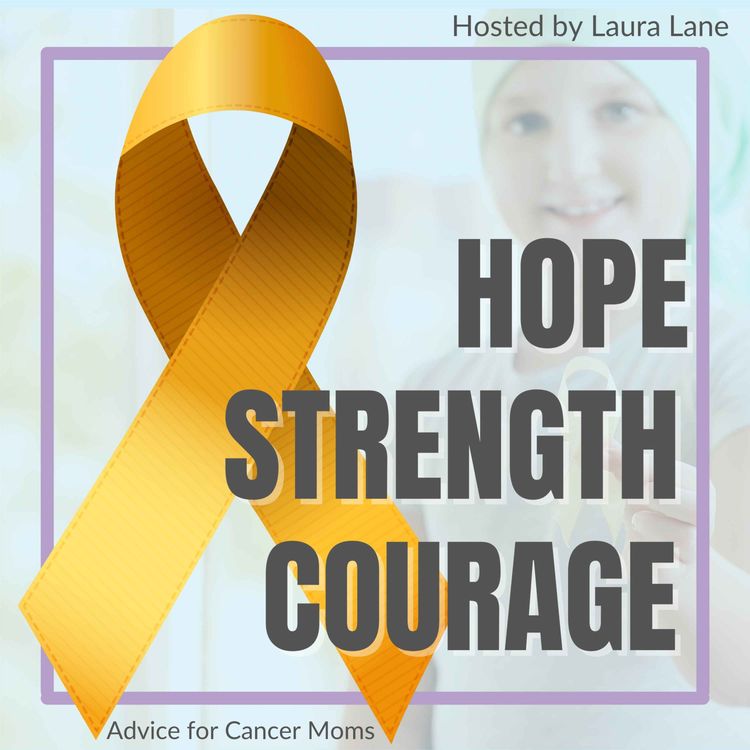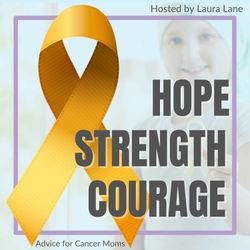Share

Hope. Strength. Courage. Loving moms whose kids are fighting for their lives!
How to call on your village to help inspire you when your child has cancer
Today’s episode features my interview with Reverend Kevin Kitrell Ross, senior minister of Unity of Sacramento.
In our last episode with Dr Geoff McCowage we talked about the importance of accepting help from your child’s medical team, today we will hear Reverend Kevin talk about the importance of surrounding ourselves with a community and allowing them the opportunity to serve us.
Kevin is such an amazing soul. I love his humble generous nature and his wisdom and insights about how we can look for and receive support from the community around us, be it family, friends, our church or spiritual community.
I hope you enjoy learning about Kevin and his work as much as I did and tune in next week for part one of three episodes with Dr Sue Morter as she discusses how to support your child without being stuck in your own fear and grief.
More episodes
View all episodes

26. How to bring self-love and self-compassion into your life
56:41||Season 1, Ep. 26This episode features my interview with David Ekram as we discuss how to bring self-love and self-compassion into your life. I really appreciate all the content David shares with us from the summary of positive psychology to David Hamilton’s three stages of self to the description of Martin Seligman’s Perma of Authentic Happiness. He covers so many important topics and ideas from the importance of gratitude, spirituality to breathwork and meditation. This is our longest episode in the Hope Strength Courage podcast series. David does a phenomenal job of covering the huge topic of positive psychology and distilling it down to the a few key topics. This 26th episode in the Hope Strength Courage Podcast is our final episode for the series but I invite you to check out all the other episodes if you haven’t already. I highly recommend starting at episode #1 for my interview with world renown pediatric surgeon, Dr Bernie Seigel as we discuss how to talk to our children when they are ill.I hope you will enjoy all the interviews in the Hope Strength Courage series as much as I did.
25. How to create affirmations that will help families through challenging times
32:13||Season 1, Ep. 25This week’s episode which features my interview with Natalie Ledwell as we discuss how to focus on the positive through affirmations and vision boards. Natalie is a colleague of mine through the Evolutionary Business Council and I am thrilled to share with you the work she has done to understand how we create our own affirmations and for both ourselves and our families that can help each one of us through challenging times. I really appreciated Natalie’s honestly and down to earth explanations of how Mind Movie affirmations and other tools like gratitude can help us to stay positive everyday. I hope you will take her up on her offer for access to the free tools on her website. I know from experience how beneficial they can all be. I hope you will enjoy this interview as much as I did.
24. How to include nutritious foods into your diet for health
31:37||Season 1, Ep. 24Now for today’s episode which features my interview with Whole Food Nutritionist Tina Jo Stephens as we discuss how we can use diet to heal our lives. Last week was part three of my interview with NLP Practitioners Ed Olvera and Jacquie Nagy and we spoke with then about using cognitive behavior therapy to help us become more hopeful. This week Tina Jo talks with us about how the food we eat makes a difference in how we feel. And the importance of finding foods that heal and sustain our bodies. Both for our children and ourselves. She talks about how to marry nutrition and how to make really good food taste good, in her words to make it taste scrumptious. What I loved about this interview is how Tina explains that this is a family adventure. And she reminded me about things I had forgotten to do myself for our family. I appreciate all the great pieces of advice she shares throughout the interview from her experiences caring for her younger brother. Everything from letting go of guilt to remembering to ask for help. Such great reminders that stand the test of time. They were helpful when my daughter was in treatment and continue to be helpful years later. I hope you will enjoy this interview as much as I did.
23. How cognitive behaviour therapy can help us become more hopeful
40:22||Season 1, Ep. 23Now for today’s episode which features my interview with Psychologist Dr Wendy Ulrich as we discuss how cognitive behavior therapy can help us become more hopeful. Last week we spoke with NLP Practitioners Jacquie Nagy and Ed Olvera about how to take time for selfcare and relaxation and I love that this week’s conversation with Wendy picks right where they left off. She shares an amazing definition of hope and talks about how we can find meaning in the most difficult situations. When we retrain our brain to look at things differently, we can calm our brains to find peace and override the negative thoughts we generate when we become depressed. I hope you will enjoy this interview as much as I did.
22. How to take time for self care and relaxation
26:39||Season 1, Ep. 22Today’s episode features part 3 of my interview with NLP Practitioners Jacquie Nagy and Ed Olvera. In part 1 and 2, Jacquie and Ed gave us an overview of Neuro Linguistic Programming (NLP) and we discussed how to use NLP and Breathing to manage daily stress. Jacquie shared her four steps to shift from overwhelm to intentional resourceful living and three of her ten daily habit to start her day. This week Ed continues the conversation about what we can do when we are in overwhelm, how to move from one state to another, and he shares an amazing, guided mediation with us. I really love the guided meditation or visualization combined with the reminders both Jacquie and Ed give to take time to practice the tools we have learned and of course hugs, get lots of hugsI hope you will enjoy this interview as much as I did.
21. How to shift from overwhelm to intentional resourceful living
34:38||Season 1, Ep. 21This week’s episode feature’s part 2 of my interview with NLP Practitioners Jacquie Nagy and Ed Olvera. In part 1, Jacquie and Ed gave us an overview of Neuro Linguistic Programming (NLP) and we discussed how to use NLP and Breathing to manage daily stress. This week’s interview was packed with steps, habits and resources we can use as parents. Jacquie goes into detail of her 4 steps to shift from overwhelm to intentional resourceful living. One of the things I loved about Jacquie’s 4 steps was when she explained how breathing can be used as a mechanism to shift ourselves from one state to another. From fear to calm or from inaction to action. When she also talked about the 10 habits of her morning and evening self care routine, it was a reminder to me to get back into my habits as well. I hope you will take Jacquie up on her offer, if you send her an email, she will send you a copy of all 10 habits. I really appreciate that after Jacquie’s four steps, Ed brought this back to what we can do when we are in overwhelm, again how to move from one state to another, and that leads us into part 3 of the interview when next week Ed will be sharing an amazing, guided mediation with us. I hope you will enjoy this interview as much as I did.
20. How to use NLP and breathing to manage daily stress
28:34||Season 1, Ep. 20Today’s episode features part 1 of my interview with NLP Practitioners Jacquie Nagy and Ed Olvera. Last week we spoke with Kevin Hall, bestselling author of Aspire as shared his deep insights he learned when his own daughter Summer was diagnosed with a brain tumour. He talked about how he and his family only wanted positive people surrounding her as she went through her treatment and recovery. This is a big part of the discussion as part of my interview with NLP Practitioners Jacquie Nagy and Ed Olvera, as we discussed this week how to use NLP and Breathing to manage daily stress. I really appreciated learning and properly understanding what NLP is all about and how we can use breathing as a leveraging point. Going from simply breathing to setting an intention on the state of being we choose to be in. Being in a state of calm rather than fear. I hope you will enjoy this interview as much as I did.
19. How to harness the power of words to remain positive in the face of adversity
33:59||Season 1, Ep. 19Today’s episode features my interview with highly sought-after business consultant, speaker and coach Kevin Hall. Kevin is one of my mentors and he generously wrote the foreword to my book Two Mothers One Prayer: Facing your child’s cancer with Hope, Strength & Courage. In this episode Kevin shares with us words that strengthen us as we support our families. What impressed me most about my interview with Kevin, is his brilliant story telling and wisdom that he shares throughout the interview. I could listen to Kevin for hours. In fact, I have listened to him for hours as he has mentored me from a number of years. I am grateful that he talked about Passion and our willingness to suffer for what we love and just like Dr Setton, in our previous episode, he talks about Victor Frankl and most importantly Genshai – never treat another person in a manner that would make them feel small. I hope you will enjoy Kevin’s stories and wisdom in this interview as much as I did.
18. How to bring more music into your child’s life
27:52||Season 1, Ep. 18Today’s episode features my interview with Fiz Anthony, Profession singer and songwriter. Fiz is a dear friend of mine whose music is featured in the opening and closing credits of the Hope Strength Courage Podcast and even closer to my heart, when my daughter Celeste found out that her cancer had become terminal, Fiz wrote a special song just for her called Angel on a Stage. You can watch the video for it on my Youtube channel. https://www.youtube.com/watch?v=FdkE5wiZcvo Last week, when I spoke with Dr Mark Setton about how to choose happiness habits to increase your daily wellbeing, we mentioned the importance of Flow – listening to, playing or dancing to music would all fall under the category of flow. That is exactly what Fiz is talking to us about in this week’s interview: the healing nature of music and how to bring more music into your child’s life.What I loved about this interview is not only hearing about the work Fiz has done to share his music with children in hospital but also his many ideas to help parents bring healing music into the lives of their children. I hope you will enjoy this interview as much as I did.